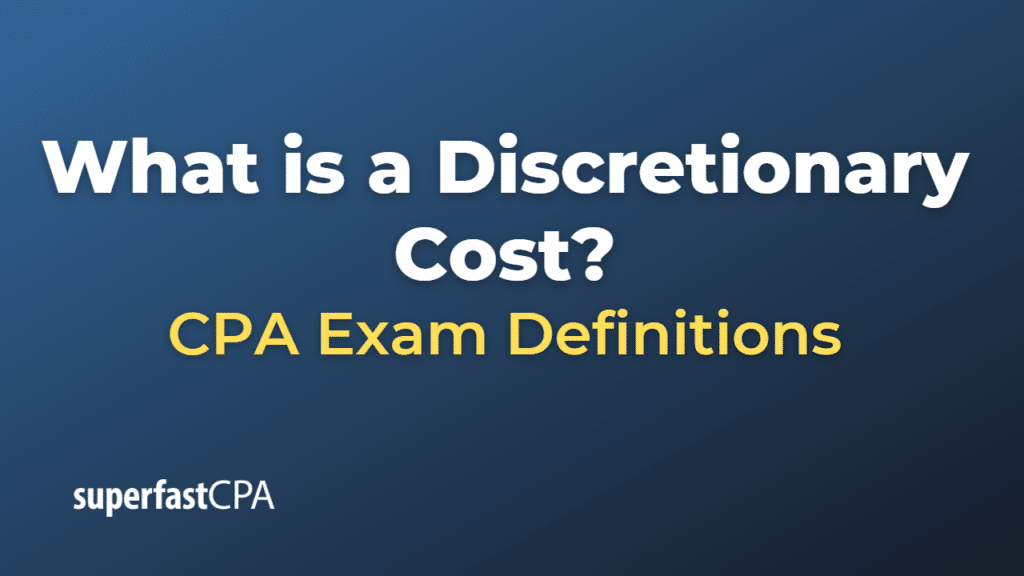Discretionary Cost
A discretionary cost is an expense that a company can choose to incur or change, without it having a direct impact on short-term business operations. These costs are often considered non-essential and can be increased or decreased as management sees fit, based on the financial health of the company, strategic considerations, or broader economic conditions.
Discretionary costs are often related to activities such as:
- Advertising and marketing campaigns: While these can drive revenue in the long term, they are not essential for day-to-day operations.
- Research and Development (R&D): These costs are incurred to create new products, services, or processes, which could potentially improve the company’s competitive position in the long term.
- Employee training: While training can improve employees’ skills and productivity, it is often seen as a discretionary cost because it can be postponed without immediately affecting operations.
- Corporate entertaining and travel: These costs can be considered discretionary as they can often be adjusted without directly impacting the company’s short-term performance.
It’s important to note that while these costs can be adjusted in the short term without immediate operational impact, over the long term, significant cuts to discretionary spending can potentially harm a company’s performance and competitiveness. For instance, consistently underinvesting in advertising or R&D may lead to a loss of market share or hinder innovation. Hence, while managing discretionary costs is important for maintaining financial health, companies should carefully consider the potential long-term implications of such decisions.
Example of a Discretionary Cost
Let’s consider a hypothetical company, called TechInnov Corp, which is involved in developing and selling high-tech consumer electronics.
Let’s say that for the fiscal year, TechInnov Corp has planned the following discretionary costs:
- Marketing and advertising: $500,000
- Employee training and development programs: $200,000
- Research and development: $1,000,000
- Corporate retreats and events: $150,000
Now suppose that the economy has entered into a recession and TechInnov Corp’s sales have declined significantly. The company needs to cut costs to maintain profitability.
After assessing their costs, TechInnov Corp decides to:
- Reduce their advertising budget by 50%, saving $250,000
- Postpone some of the employee training programs, saving $100,000
- Maintain the research and development budget because they believe that continuing to innovate is crucial to their long-term survival
- Cancel all corporate retreats and events for the year, saving $150,000
So, in this scenario, TechInnov Corp was able to reduce its discretionary costs by $500,000 ($250,000 + $100,000 + $150,000), which could help it navigate through the difficult economic conditions. These decisions did not affect the core operations of the company in the short term, but could have implications for the company’s long-term growth and employee morale.













